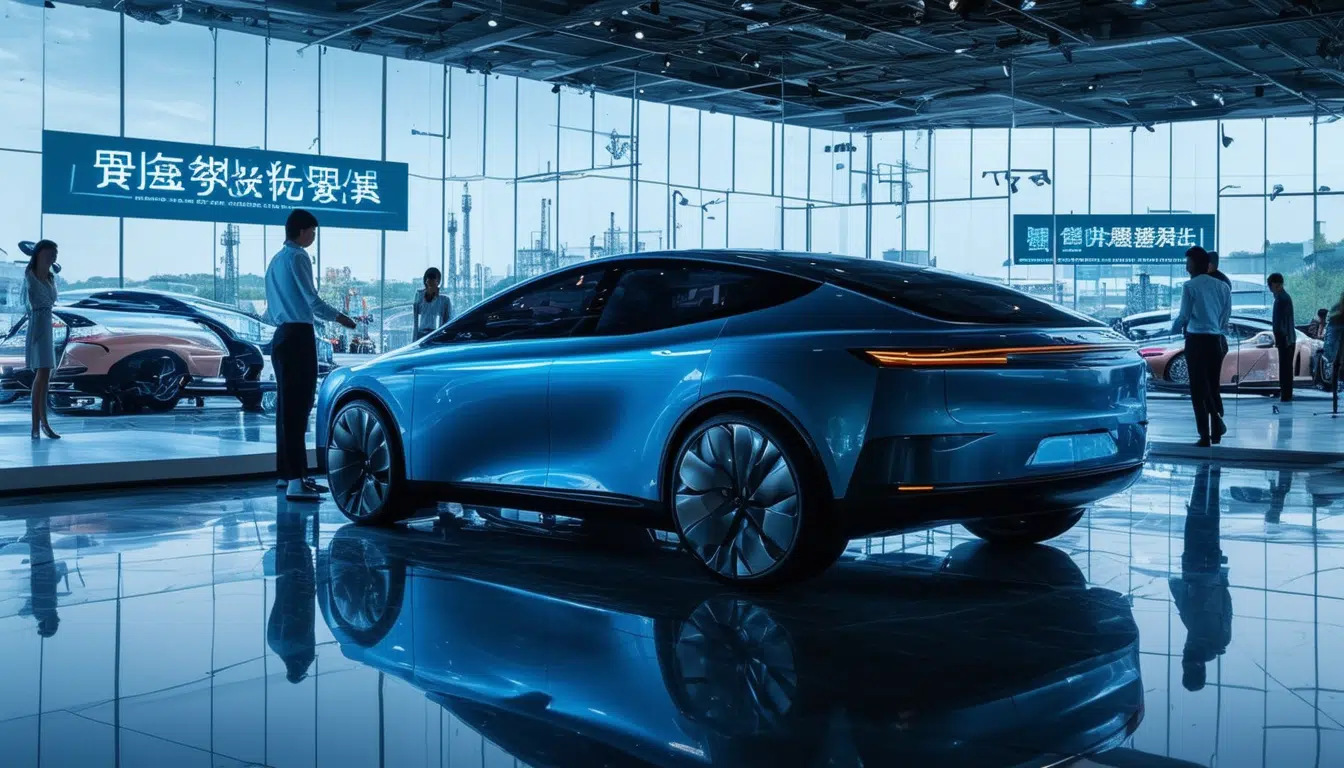This Chinese electric vehicle brand warns about the risk of abandoning the production of gasoline cars

In the vibrant automotive landscape of China, where the fascination with electric vehicles continues to grow, a prominent domestic brand has raised its voice to caution against the potential risks of prematurely abandoning gasoline car production. This statement resonates at a critical moment of transformation in the industry, as many manufacturers focus their efforts on accelerating the transition to electric mobility. However, the manufacturer in question argues that amid the push toward electrification, it is crucial not to lose sight of the value of internal combustion engine vehicles, especially considering variations in consumer preferences and the still-developing charging infrastructures.
In China, where electric cars are increasingly dominating the market, one of its major manufacturers defends the continuity of gasoline vehicle production. Through recent statements, the company has expressed that completely suspending gasoline car production would be a strategic mistake, as these vehicles continue to represent a significant part of global sales. Despite the rise of electric vehicles, the brand emphasizes the importance of internal combustion engines, both in economic terms and due to consumer preferences.
The Rise of Electric Vehicles in China
The automotive market in China has experienced an unprecedented shift with the arrival of electric vehicles. Since September, more than half of the cars sold have been plug-in models, highlighting how China loves the electric car. This phenomenon has been crucial for the country’s leadership in global electric car sales, especially in November. However, not everyone in the industry shares the enthusiasm for completely abandoning combustion engines.
A Countercurrent Stance
A Surprising Statement
In a recent interview, the CEO of one of China’s leading automotive manufacturers expressed his opposition to this total trend towards electrics. In particular, he suggested that it would be a mistake to stop producing gasoline cars, forming an opinion that seems to go against the current automotive sector in China.
Profitability Still Lies in Combustion Engines
The CEO emphasizes that for a manufacturer, ceasing production of vehicles with internal combustion engines would mean losing a growth engine for profitability. The assertion is clear: electric cars do not yet fully reflect the transition of the automotive sector. Thus, he argues that it is necessary to return to the industry’s roots to remain profitable.
Gasoline Cars: A Continuing Necessity
Despite the growing popularity of electric vehicles, conventional cars with internal combustion engines will continue to represent a significant part of the market. According to the executive, around 30% of global automobile sales will still come from gasoline cars, due to consumer preferences and limited charging infrastructure for electric vehicles. Additionally, these engines are expected to become increasingly efficient, contributing to efforts to reduce greenhouse gas emissions.
Global Market Realities
A Still Considerable Pie
In China, although electrification is advancing by leaps and bounds, gasoline cars still hold 48% of the market. This represents a significant slice of a giant market, validating this manufacturer’s position on the necessity of maintaining the production of these vehicles.
Growth Prospects
The company also plans to deliver an impressive number of gasoline vehicles to its customers, highlighting an increase in sales while the rest of the industry in the country predicts a decline in demand. This fact resonates especially when major brands worldwide are reassessing their aggressive electrification strategies due to a slower-than-expected pace of electric car adoption.
The Combination of Hybrid Technologies
Meanwhile, the debate over plug-in hybrids (PHEVs) is gaining relevance. In China, the sales of these vehicles have shown remarkable growth, reaching 60% of the sales of some manufacturers. These models, despite having a gasoline engine, are considered part of the “new energy” category. In fact, advances in AI continue to enhance the capabilities and efficiency of these vehicles.
An Integrated View of the Transition to Electric
It is clear that the path to a fully electric future is not as straightforward as expected. Brands must balance market strategy with technical evolutions, maintaining a diversified range that includes combustion cars while exploring innovations such as the future of hoodless cars.
Final Reflections on the Automotive Future
Navigating Between Two Worlds
Ultimately, this manufacturer’s position reflects a balanced perspective in which internal combustion engines and electric vehicles can coexist in the short to medium term. At the macro level, expanding urban geographies and urban planning are also aiding in managing this transition, ensuring that sustainable mobility remains a priority.
The Reality of Self-Fueling and the Fuel Market
The fuel market is also in a state of change, with the emergence of new forms of self-fueling, altering the way consumers think about energy and mobility.
Geely’s Perspective on the Automotive Future
The statement by Geely’s CEO that it would be a mistake to abandon gasoline car production presents a unique perspective in the context of the rise of electric vehicles. Despite China leading the transition to plug-in cars, Geely highlights the relevance of continuing to produce internal combustion vehicles.
Gui Shengyue points out that a manufacturer that completely eliminates combustion engines could lose an important profitability engine. Within the global landscape, many markets and consumers still rely on gasoline cars due to the lack of charging infrastructure for electric vehicles and diverse driving preferences.
Furthermore, Shengyue suggests that future combustion models will be more efficient, consuming less fuel and adapting to the demands for reducing emissions. He argues that these vehicles will also evolve in intelligence, similar to electric cars.
In China, a considerable part of the market still corresponds to gasoline cars, with Geely planning to sell more than 820,000 units this year. This business model, alongside electric vehicle production, demonstrates a possible coexistence in the automotive market that could be replicable in other regions of the world.
Globally, several manufacturers, from Stellantis to Porsche, recognize that total electrification may be delayed, reinforcing the need to continue producing and developing combustion engines. This is a palpable reality where combustion models help offset current losses in electric vehicle sales.
In conclusion, in the face of an uncertain and transitional future, Geely’s position underscores the importance of a balanced strategy that combines electric innovation with the tradition of combustion engines. This duality ensures not only economic viability but also a diversified offering that meets the multiple needs of today’s market.




